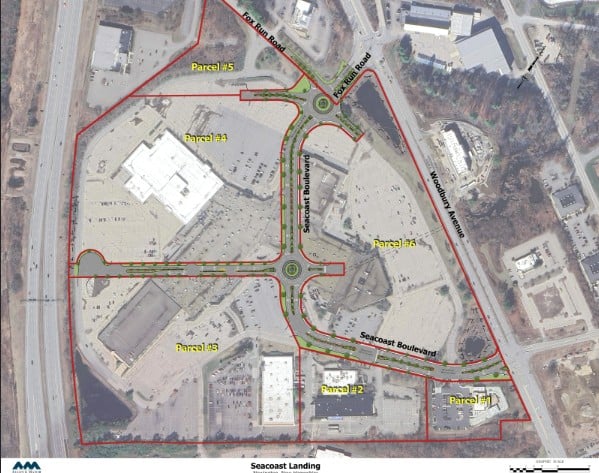New Hampshire ranks first among all 50 states in the economic complexity of its international trade, a measure that points to economic sustainability and strong economic growth in the future, according to a research project launched by MIT economists.
The complexity model looks at networks that develop among companies within a region. The more companies with connected activities, the better an economy is poised for growth, according to the Observatory of Economic Complexity.
Cesar A. Hidalgo, co-founder of OEC, likened it to a player having more Scrabble tiles that can be arranged into a word. He paints a picture of a state dependent on an open trade system and its high-tech neighbors.
“In New Hampshire, there’s a lot of advanced manufacturing, but it also looks like New Hampshire imports a lot of what it needs,” said Hidalgo, whose idea for OEC stemmed from research he and a colleague undertook at the Massachusetts Institute of Technology.
He spoke to NH Business Review from the Toulouse (France) School of Economics, where he is a professor of social and behavioral sciences.
Another good sign for New Hampshire, Hidalgo said, is that the state’s export destinations are countries with advanced economies — Germany is the leader at 19% of exports, followed by Canada, Mexico and Japan.
Hidalgo launched OEC in 2012, and it has become an online data visualization platform that focuses on the geography and dynamics of economic activities.
He said the level of complexity means the Granite State economy should outpace the growth of the United States as a whole in the coming years.
New Hampshire’s top exports are aircraft related. The Granite State exported $1.63 billion in that category last year, about 23% of all exports.
“We don’t have Boeing making finished planes in New Hampshire, but the stuff that goes into the planes Boeing makes comes from New Hampshire. Same with SpaceX, same with Airbus,” said Jeff Rapsis, executive director of the Aviation Museum of New Hampshire.
Some of the largest employers in the state — BAE Systems, GE Aerospace and Albany International — are involved in aerospace and related industries, but hundreds of smaller firms also operate in the state, he said.
“The tendency of high technology is to breed innovators, people who jump out of the bureaucracy to build a better mousetrap,” Rapsis said.
The Aviation Museum coordinates one effort to keep aviation strong in New Hampshire. Aviation and tech companies help fund museum initiatives such as summer camp and high school plane-building efforts in order to hype aviation and engineering careers.
Other industries showing high levels of economic complexity in New Hampshire are artificial textile machinery, rolling machines, machines with individual functions and electric soldering equipment.
The findings also show that New Hampshire kept a relatively stable level of exports, ranging from $6.4 billion to $7.6 billion over the last four years.
Imports grew more substantially over that period. Imports increased by nearly $500 million last year and reached $10.2 billion. That pushed the state’s balance of trade deficit in products to $3.08 billion last year, a high of at least five years.
Last year, the state’s biggest imports were gas turbines, which comprised nearly a third of all imports, unspecified commodities, petroleum and leather footwear.
Hidalgo said the New Hampshire economy depends on both robust imports and exports.
“I don’t want to get too political, but that’s what that data shows,” he said.
OEC obtains its national and state data from the U.S. Census Bureau, which tracks imports and exports in the United States.
The company compiles trade-related data worldwide, and sells its information to consultants and academics. It consults with several countries such as Mexico and Saudi Arabia on economic development.
When it comes to trade-related economic complexity, the two lowest ranking states are North Dakota, whose exports involve petroleum products, tractors and corn, and Alaska, whose top exports are zinc ore, non-frozen fish and gold.
Massachusetts ranks No. 2 in the economic complexity scale (it was No. 1 in 2023), and Connecticut ranks No. 3. New Hampshire’s other neighbors, Vermont and Maine, ranked 21st and 43rd, respectively.
Hidalgo said New Hampshire’s proximity to Massachusetts and Quebec help maintain its strong complexity ratings. In other metrics, such as patents, the state is not as high.
“Its complexity is propped up quite a bit by its neighbors,” Hidalgo said. “When we look at other metrics, New Hampshire is not the top dog. In part, it’s working with borrowed knowledge.”












